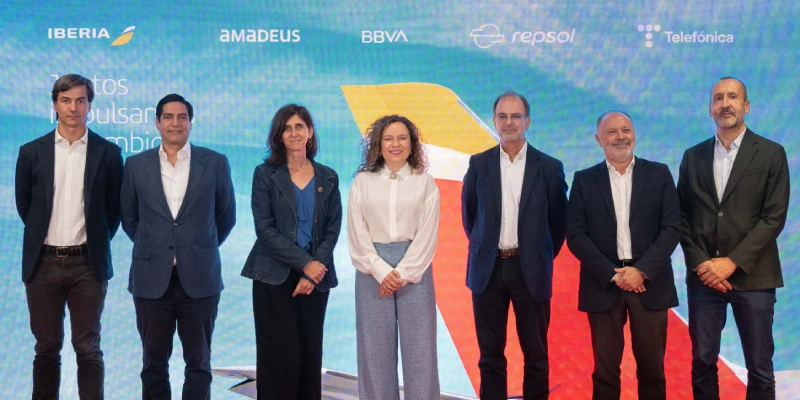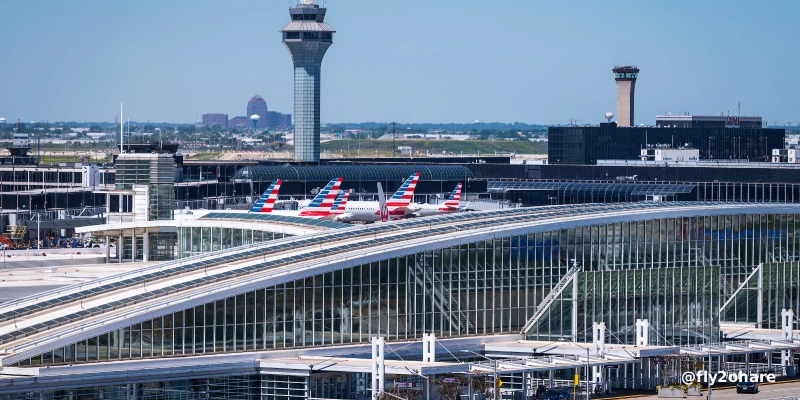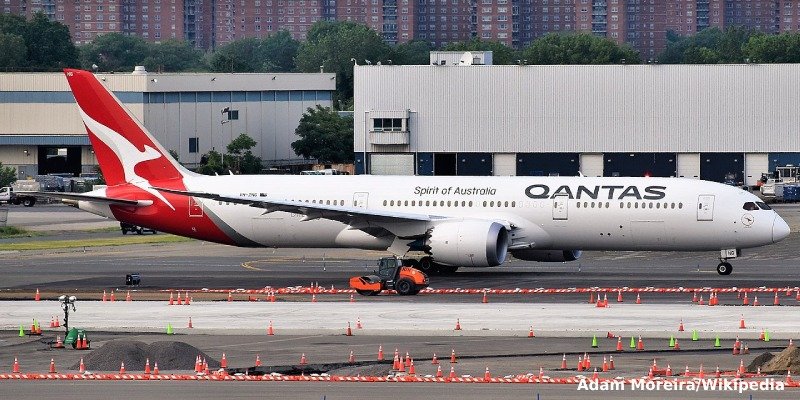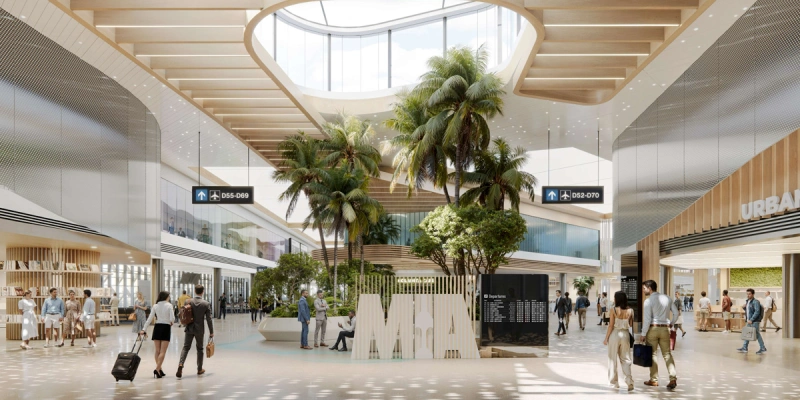Iberia has taken a decisive step in its commitment to sustainability by presenting the Círculo SAF, a strategic alliance created to promote the use of Sustainable Aviation Fuel (SAF). This project aims to bring together companies from different sectors to progressively reduce emissions from business travel and cargo transport, known as Scope 3 emissions.
An Alliance for Decarbonization
The founding members of the Círculo SAF are four major corporations committed to sustainability: Amadeus, BBVA, Repsol, and Telefónica. These companies have joined the collective effort to reduce emissions from their corporate and cargo flights operated by Iberia by between 10% and 30%.
The Círculo SAF will allow participating companies to associate a portion of their emissions with the use of this fuel, certified according to the sustainability criteria of the European Renewable Energy Directive. Furthermore, it offers exclusive advantages, such as corporate rewards within Iberia’s loyalty program, and three levels of participation or tiers, opening the door to companies of different sizes and sectors.
Joint Commitment to the Environment
During the presentation, María Jesús López Solás, Commercial Director, Network Development and Alliances, and Diego Fernández, Director of Strategy, Transformation and Sustainability at Iberia, highlighted the importance of collaboration between companies to advance towards cleaner aviation.
“We are very proud that these four major companies are joining Iberia to contribute to decarbonization through the use of SAF. We can only achieve this goal if we work together,” said Diego Fernández.
Voices of the Founding Partners
Amadeus sees the Círculo SAF as an opportunity to leverage its technological experience and its connection with millions of travelers.
“We want to accelerate the adoption of more sustainable travel through information and solutions based on our technology,” said Lucas Bobes, Group Environmental Officer of the company.
→ Iberia Digitizes Its Flight Operations with Implementation of eTLB
For BBVA, the initiative fits into its roadmap towards carbon neutrality.
“Being part of the Círculo SAF reinforces our carbon footprint management and supports the decarbonization efforts of the aviation sector,” explained Leonardo Pereyra, Head of Direct Impact at Sustainability Area.
Repsol, for its part, underlined the role of innovation in the production of sustainable fuels.
“Our plant in Cartagena, one of the most advanced in Europe, can produce 250,000 tons of SAF per year,” highlighted Carlos Suárez, B2B and Commercial Aviation Director.
The executive emphasized that this capacity will allow them to meet the growing national and international demand for renewable fuels and strengthen collaboration with partners like Iberia.
Finally, Telefónica takes on the challenge as part of its net-zero emissions strategy for 2040.
“Although corporate travel only represents 2% of our indirect emissions, every ton counts. This alliance combines innovation and collaboration to drive real change,” said Maya Ormazabal, Director of Environment and Human Rights.
What is Sustainable Aviation Fuel (SAF)?
SAF (Sustainable Aviation Fuel) is an alternative to traditional kerosene that can be produced from agricultural or forestry waste (bioSAF), or using renewable hydrogen and captured CO₂ (eSAF or synthetic SAF). It can also be derived from industrial processes involving recycled carbon.
According to the European Union Aviation Safety Agency (EASA), its use can reduce greenhouse gas emissions by up to 80% over the fuel’s entire life cycle. Furthermore, its major advantage is full compatibility with existing aircraft and infrastructure, making it the most viable option currently available to reduce emissions in the aviation sector.
BioSAF also contributes to the circular economy, as it utilizes plant waste that would otherwise end up in landfills or be disposed of on farms. A consolidated SAF industry would mean more efficient use of these resources and a direct boost to the energy transition.
Scope 3 Emissions: The Shared Challenge
Scope 3 emissions are those generated indirectly by the supply chain, such as the production of raw materials, transport, or corporate travel. Reducing them is a key challenge for any organization seeking to meet its climate goals.
With the Círculo SAF, Iberia and its founding partners are putting forward a concrete and measurable pathway for companies to integrate sustainability into their daily activities, without sacrificing mobility or competitiveness.
Related Topics
FAA Proposes Flight Reductions at Chicago O’Hare to Avert Summer Operational Collapse
Qantas announces new route: Sydney and Las Vegas to be Connected for First Time via Direct Flights
FAA Issues Airworthiness Directive for Boeing 737 MAX Due to Risk of Excessive Cabin Temperatures
American Airlines Invests US$1 Billion to Transform Concourse D at Miami International Airport

Plataforma Informativa de Aviación Comercial con 13 años de trayectoria.




